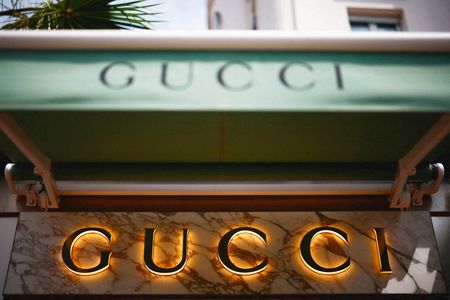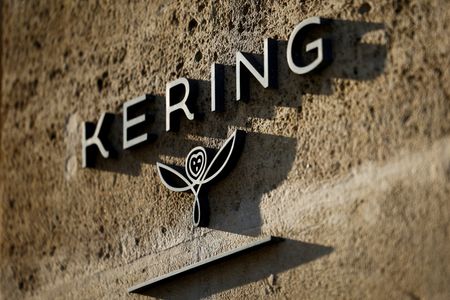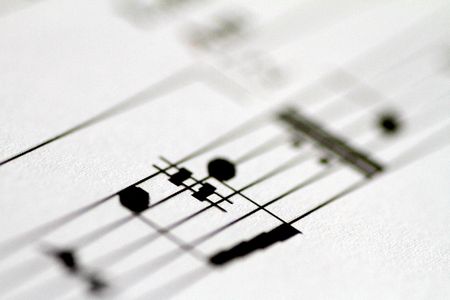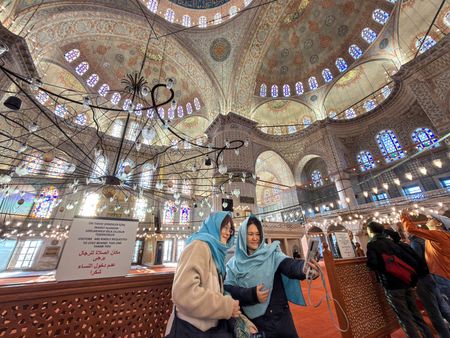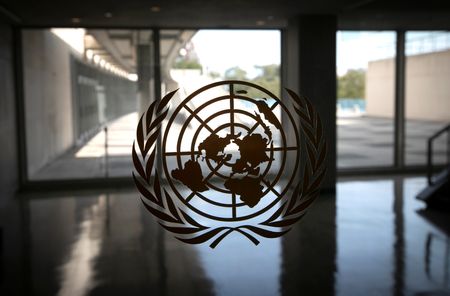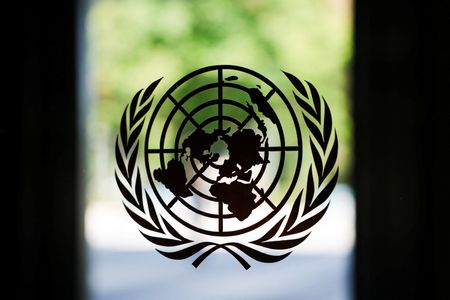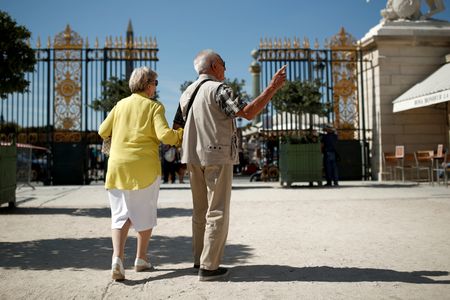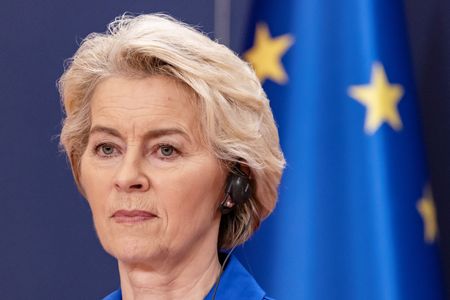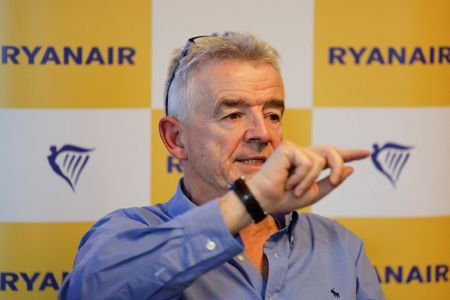By Mimosa Spencer and Tassilo Hummel
PARIS (Reuters) – Luxury group Kering said its return to growth will take time after its embattled star label Gucci posted another quarter of weak sales and has yet to name a new chief designer to galvanise the Italian brand.
Shares in Kering jumped in early trade on Tuesday, before paring gains, as the market briefly seized on hopes the company had reached an inflection point.
The French group said its sales fell 12% in October-December on a comparable basis from a year earlier, dragged down by a 24% drop at Gucci, which accounts for nearly half of group sales and two thirds of recurring operating profit but continues to struggle.
Sales at the group’s smaller labels, particularly the upmarket Bottega Veneta, did better than expected, however.
“These results should reassure investors that trends are modestly improving against low sentiment and favourable positioning,” analysts at RBC said in a note.
Kering CEO Francois-Henri Pinault said the group has reached a “point of stabilization, from which we will gradually resume growth”.
“Gucci will come back. I have absolutely no doubts about this,” Pinault said.
He cautioned, however, that sales will pick up slowly in 2025. The group is focusing on cost control, and this year plans to close around 50 of its 1,800 stores, a third of which are outlets, executives said.
The group last week sacked Gucci designer Sabato de Sarno.
Kering executives, who gave no hint of who would succeed him, rejected the idea that De Sarno, who was fired after less than two years, was not the right hire. They said he helped the century-old label shift its focus back to more classic elegance.
“We are ready today to move on, and to deliver the creativity we now need, it’s time for new artistic direction,” said Pinault. Executives said a new designer would be announced promptly.
Gucci’s fourth-quarter sales slump showed its aesthetic overhaul is still struggling to win new business. Analysts had not expected a rebound until next year but have said the recruitment of a new designer could slow progress.
The industry’s sales rate is the slowest in years, weighed down by a property crisis in China.
Finance chief Armelle Poulou told reporters that Kering’s sales in mainland China and among Chinese shoppers globally rose by a combined 6 percentage points compared with the third quarter, while U.S. sales also increased.
Previously one of the industry’s biggest success stories, with soaring growth in the 2016-2020 period, fuelled by baroque, gender-fluid designs from Alessandro Michele, Gucci fell behind when shoppers’ tastes shifted.
Rivals, including LVMH-owned Louis Vuitton and Dior, meanwhile, successfully tapped into the strong, post-pandemic surge in demand for fashion.
Full year recurring income from group operations came to 2.6 billion euros, slightly above Kering guidance in October for 2.5 billion euros.
Kering’s 12-month price-to-earnings ratio, based on projected earnings, is 19, behind LVMH at 24 and Moncler at 25, as well as Burberry, which is currently undergoing a revamp under new management and has shot up to reach 60, LSEG data shows.
($1 = 0.9705 euros)
(Reporting by Mimosa Spencer and Tassilo Hummel; Editing by Dominique Patton and Susan Fenton)

